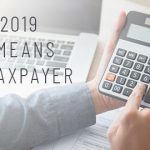What is Income Tax?
This may seem obvious to some but many new self-employed people have never really heard of this term before and are unsure as to what it means when running your own business. So today I thought I’d quickly go over the key information about Income Tax.
So as the name suggests, income tax is quite simply the tax you pay on everything you earn. It’s the most common type of tax that everyone pays and you’ll probably have been paying it your entire life if you’ve earned an income, just not many people know it as ‘income tax’ – so with that out of the way lets dive a little deeper…
There will always be an income tax ‘threshold’ which the government set, this is known as your ‘tax-free personal allowance’. This is the amount which you have to earn in order to start paying income tax, so if you earn below this amount then you don’t pay any income tax – happy days! But of course (as much as we’d like to believe it sometimes!) the government wasn’t born yesterday and so they set this threshold pretty low (at the time of writing this blog it’s £10,600 as standard), so if you’re earning an average income then you’ll likely pay income tax.
One thing to remember is that there is no age limit on income tax – so if you’re a younger budding entrepreneur then as soon as you earn over this threshold you will also have to pay income tax…sorry!
The next thing to discuss is that there are types of income which are ‘taxable’ (you pay tax on them) and there are types of income which you don’t pay tax on – ‘non-taxable’. So this basically means if you earn any income from the list of ‘taxable’ list then you will pay tax on it, but if you earn any income from the list in the ‘non-taxable’ spectrum then you don’t have to worry about paying any income tax on that, even though it’s technically an income. Below is the list of ‘taxable’ income:
- Income from employment including ‘benefits in kind’ (e.g. company car)
- Income from self-employment
- Income from pensions including state, occupational and personal
- Income from most social security benefits
- Income from the interest gained on savings
- Income from shares/dividends
- Income from rented property
- Income from trusts
So anything outside of this list is non-taxable income and you wont pay tax on it, the full list can be seen here.
There are also things known as ‘tax reliefs’ which are forms of income which you can deduct from your total income figure so you can reduce the amount of tax you pay on the income you’ve earned. There are six main categories which apply for tax reliefs:
- Pension Contributions
- Charity Donations
- Maintenance Payments
- Time spent working on a ship outside the UK
- Money spent on running your business
- Money spent on essentials for your employment
As with all things there are rules and regulations on what tax reliefs are available under these categories so for more information on each one please click here.
Finally, how do we pay income tax? Well in it’s most simplest form there are 2 methods which apply to employed and self-employed individuals:
Employed people will pay their income-tax through their PAYE which is nice and simple and means you don’t have to worry about remembering to pay it since it automatically comes out of your pay.
Self-Employed people on the other hand pay their income tax annually by filling in their Self-Assessment Tax Return which informs the government of what you have earned that year (April 5th to April 5th the following year) and then you must pay your entire income tax for that amount. This can be quite a large sum if you have earned a lot in one year and so my suggestion to new self-employed individuals is to simply put aside 20% of all income you make into a seperate account where you cannot touch it, then when it comes time to pay your income tax it’s all there ready for you.
And that ladies and gents is Income Tax in a nutshell!














Share On